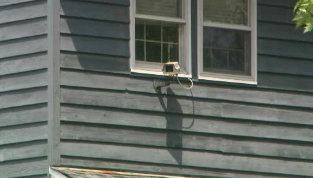
New York Gov. Andrew Cuomo recently signed a bill into law that allows homeowners to sue a neighbor for invasion of privacy if the neighbor secretly records recreational activities in the homeowner’s backyard.
The bill, sponsored by state Sen. Cathy Young, R-Cattaraugus County, and Assemblyman Ed Braunstein, D-Queens, builds on a 2003 law that made it a felony to videotape someone without their permission in an intimate setting where there would be a reasonable expectation of privacy, such as a bedroom or bathroom.
The Young-Braunstein bill was born out of a 2011 case in Chautauqua County, in which a convicted sex offender put up cameras outside his home, one of which was pointed at the neighboring family’s backyard. In an interview, Young said the family, which included an 11-year-old boy and 14-year-old girl, called police who said nothing could be done under the law at that time.
“This family felt like they were hostages in their own home,” Young said.
The family, who are unnamed, didn’t seek to publicize the incident because of concerns for the children’s welfare, Young said.
The 2003 Stephanie’s Law created an unlawful surveillance felony after Stephanie Fuller of Long Island discovered her landlord was videotaping her bedroom using a hidden camera
in a smoke detector. At the time of the incident, the landlord, William Schultz, couldn’t be charged under the state’s “Peeping Tom” laws because the landlord was not filming her through the window, according to the bill’s sponsor’s memo. He was fined and put on probation for violating Fuller’s privacy, the Daily News reported at the time.
Young said that the sponsors feel creating the right to file a lawsuit for surveillance of a backyard is a “good first step,” but that criminalization of that kind of surveillance would be a more difficult measure to pursue.
“The backyard is a little bit more public, even though it’s your private property” she said. “That’s why we felt we should go (for) the private right of action first, and see how it works. If there’s still problems that are occurring in the state, then we should look at possible criminal penalties.”
The right to sue would extend to both owners and tenants of a residential property who did not consent to being recorded in the backyard by someone who affixed a camera to an adjoining property with the intent to harass, annoy, alarm or threaten another person.
The bill contains an exemption for law enforcement surveillance.
Source: timesunion.com
